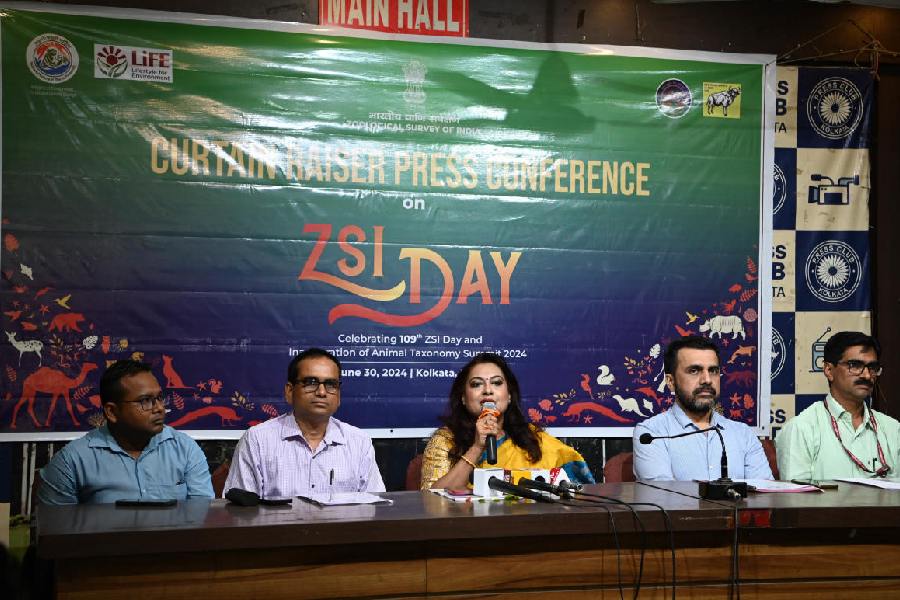More than 100,000 animal species have been discovered in India since the 1750s.
An exhaustive portal with information on each of them will be launched at a programme on Sunday.
The Calcutta-headquartered Zoological Survey of India (ZSI), the country’s oldest taxonomic research organisation, will celebrate its 109th foundation day on June 30. In commemoration of the day, the institute is hosting the Animal Taxonomic Summit - 2024 from July 1 to 3.
“This is a first-of-its-kind exercise in the world. Some other countries may have separate compilations of mammals, amphibians or insects. But India is the first country in the world which has prepared a complete list of fauna documented from the country,” Dhriti Banerjee, director of ZSI, told a news conference at a Maidan club on Wednesday.
“While India accounts for only two per cent of the planet’s land mass, it accounts for 7.5 per cent of the world’s biodiversity. We are a remarkably bio-diverse country, especially when you take our population density into account,” said Banerjee, the first woman to lead India’s umbrella institute for biodiversity studies.
A ZSI official said more than 100,000 species have been reported from India till now.
“Since the 1750s, or the time of Carl Linnaeus (the 18th century Swedish naturalist often called the Father of Taxonomy and whose system for naming, ranking and classifying organisms is still in wide use) and the present, we have had over 1 lakh different species. The portal will have details on each of them,” he said.
The Union minister of environment, forests and climate change, Bhupender Yadav, will launch the Fauna of India Checklist Portal at the Biswa Bangla Convention Centre in New Town on Sunday.
He will also release a list of animal and plant species discovered in India in 2023. More than 600 animal and more than 300 plant species were discovered in India last year, said ZSI officials.
“More than 350 delegates from four countries, including the Natural History Museum in London, will participate in the summit, which will end on July 3. The recommendations of the summit — related to biodiversity conservation — will be conveyed to the Union government,” the ZSI said.
The ZSI is collaborating with the Natural History Museum to have a common digital archive. An MoU was signed in 2021 between the two institutions to “work together to collect, study and conserve faunal specimens for science and to create and exchange associated data and images”.
The ZSI will also work with the Ghana Wildlife Society on a conservation project for pangolins, Banerjee said.











